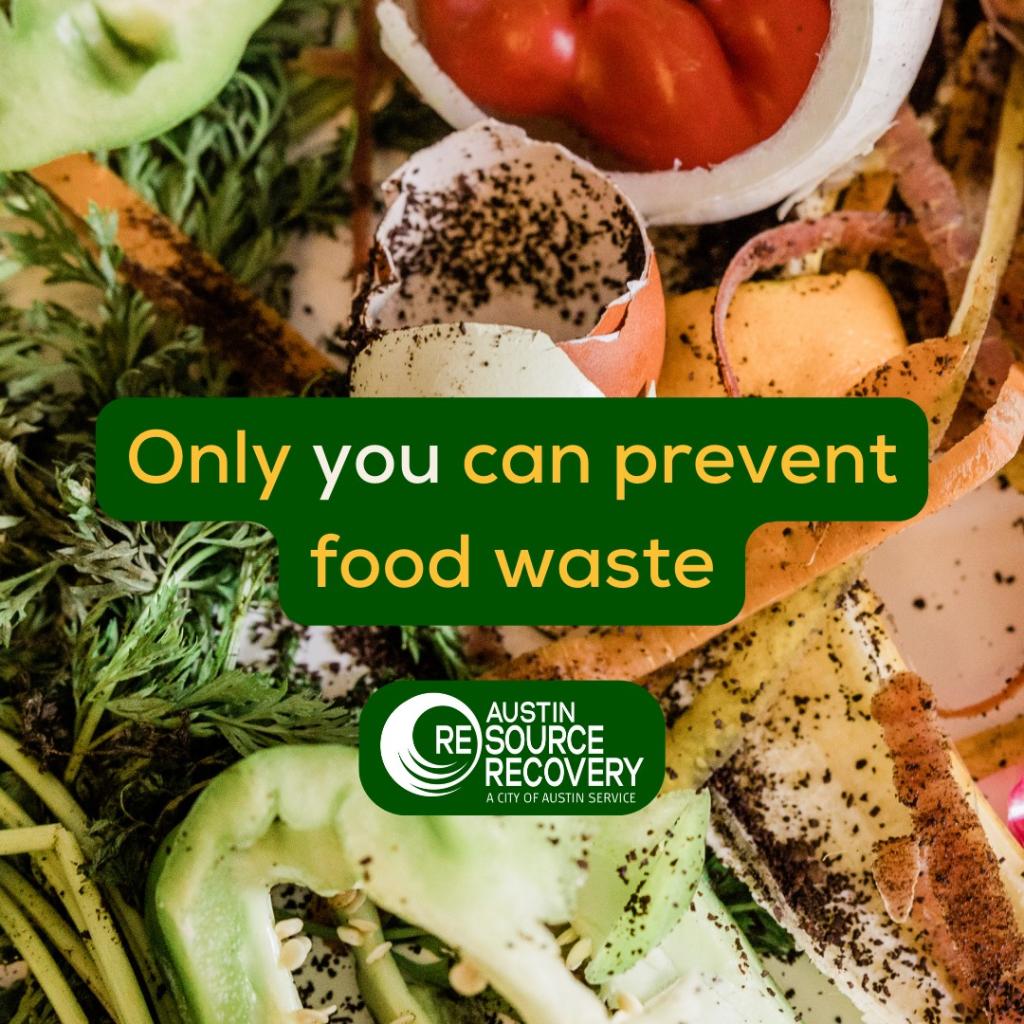Tips to reduce food waste (and save money)

By Jeff Patterson
You probably don’t think much about tossing out leftovers or food that is past its “sell-by” date. Unfortunately, throwing away unconsumed food contributes to a larger collective problem of food waste. All told, some 1.24 million pounds of food are wasted every day in the Austin area.
All that squandered food ends up decomposing in landfills and generating methane, a hazardous air pollutant and greenhouse gas. Climate scientists estimate that nearly 10 percent of all greenhouse gas emissions are caused by food waste in landfills.
Austin’s Curbside Composting Collection Program collects food scraps, yard trimmings, food-soiled paper and natural fibers in your green composting carts and converts them into nutrient-rich compost. The compost is available to residents as mulch to help soil retain water or as fertilizer to feed lawns and gardens without chemicals.
By composting and keeping food out of landfills, we can help protect our planet and reduce greenhouse gas emissions in our own backyard. Even more, reducing food waste can help save money. Every year, Americans lose more than $218 billion on wasted food. A family of four can save an average of $1,500 per year by preventing food waste!
Austin Resource Recovery wants to keep Austinites informed about practical and cost-effective ways you can prevent food waste.
Top tips to help you reduce food waste
-
Create an “Eat This Now” section in your refrigerator and pantry. Organize food that needs to be consumed quickly and label the purchase dates to prioritize older items.
-
Cook only what you need for specific meals. Be intentional about the portions you are cooking and the ingredients you are buying. This food calculator can help estimate the amount of food needed.
-
Learn how to properly store fruits and vegetables to make them last longer. Some fruits and vegetables prefer cool, dark spots while others prefer to stay on your counter.
-
Compost food scraps that you can’t finish. Composting gives your food another life as rich soil that benefits our community. The planet will love you for it!
-
Your freezer is your friend. You can freeze most foods, such as meat and vegetables, that you don’t intend to eat right away. This will help keep the food from going bad before you have a chance to eat it.
-
Don’t always believe the labels. Labels like “best by” and “sell by” serve as guides for the quality of a product, not its expiration date. These labels are not regulated by the U.S. Food and Drug Administration. Use common sense to determine if a product is still good to eat.
For more information, visit How to End Food Waste & Donate Food in Austin | AustinTexas.gov.
